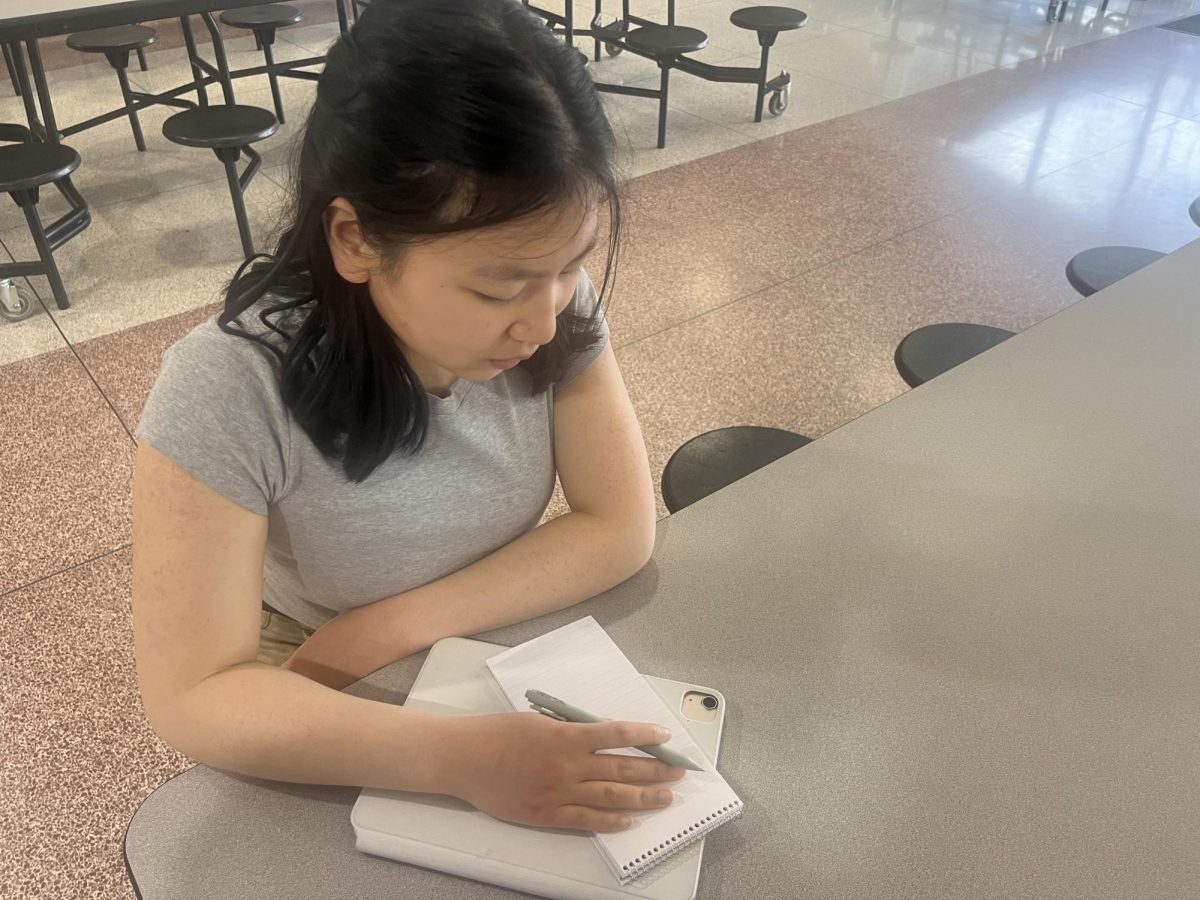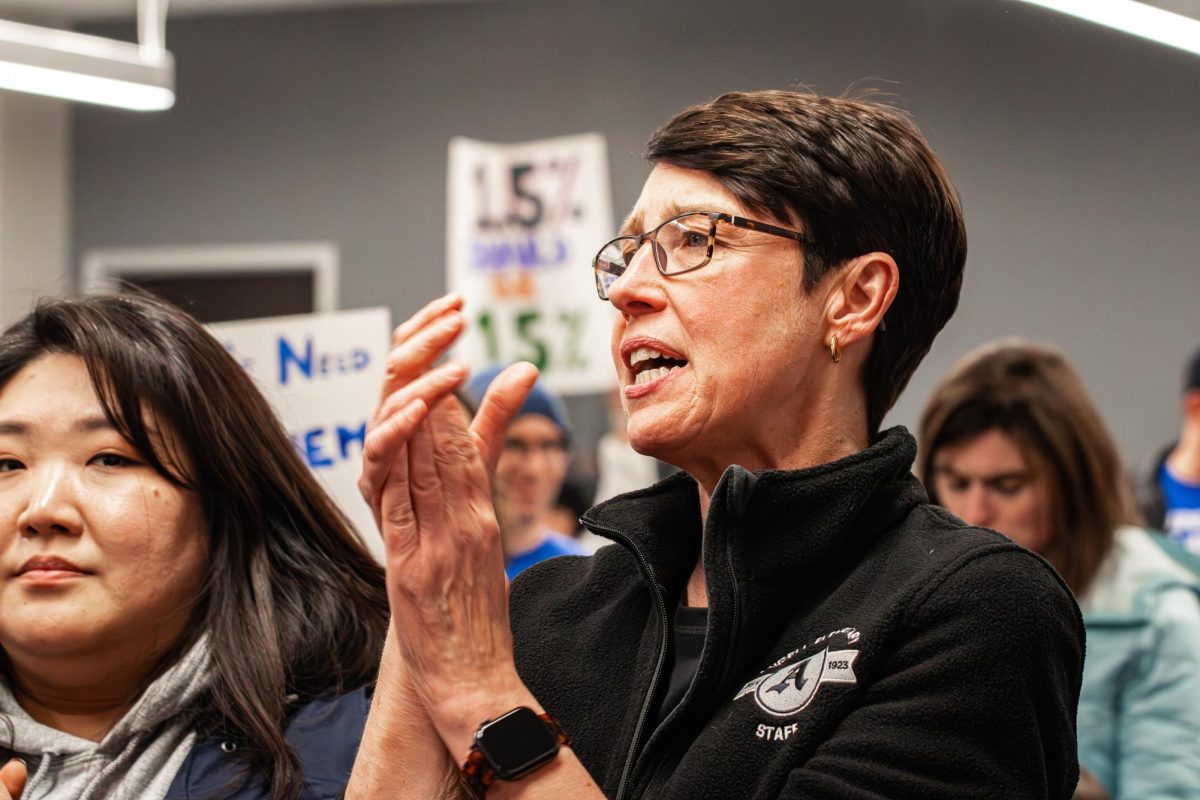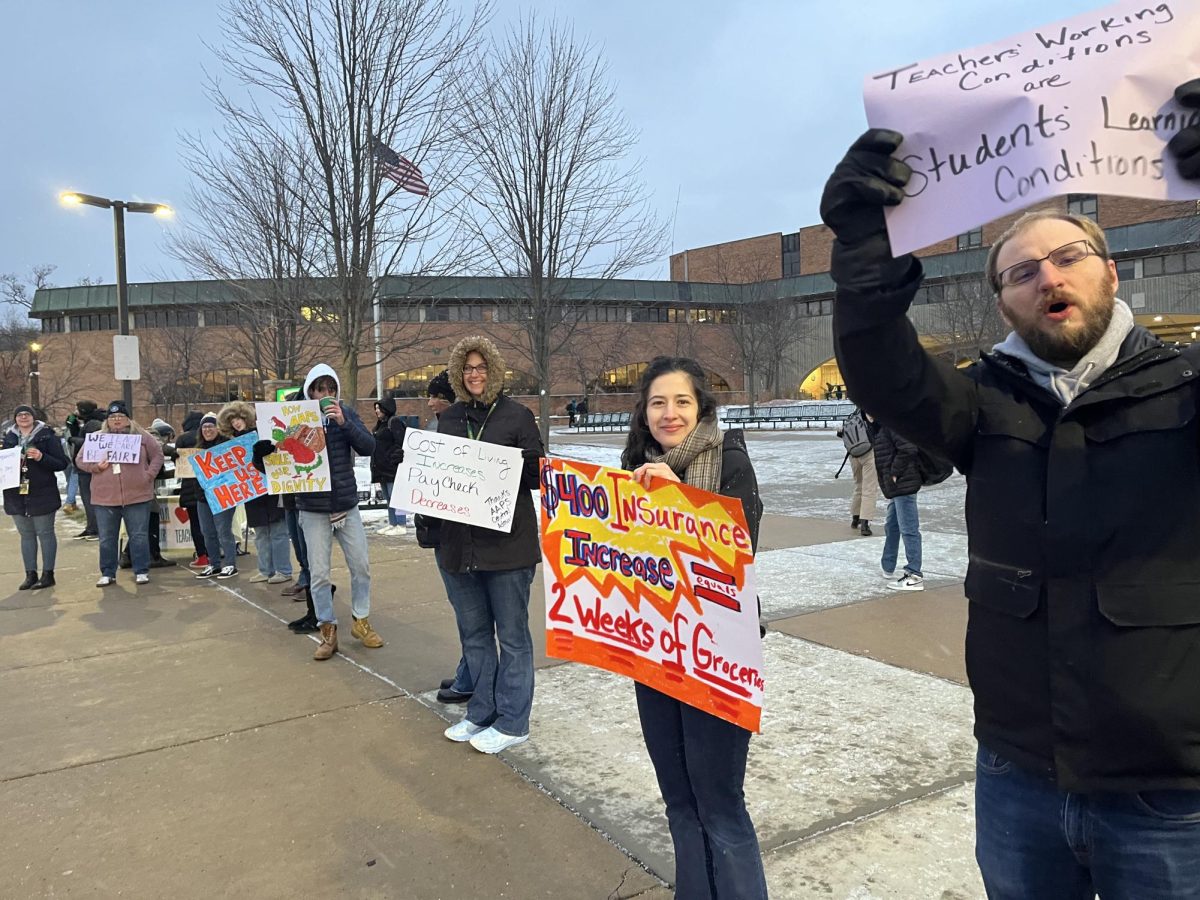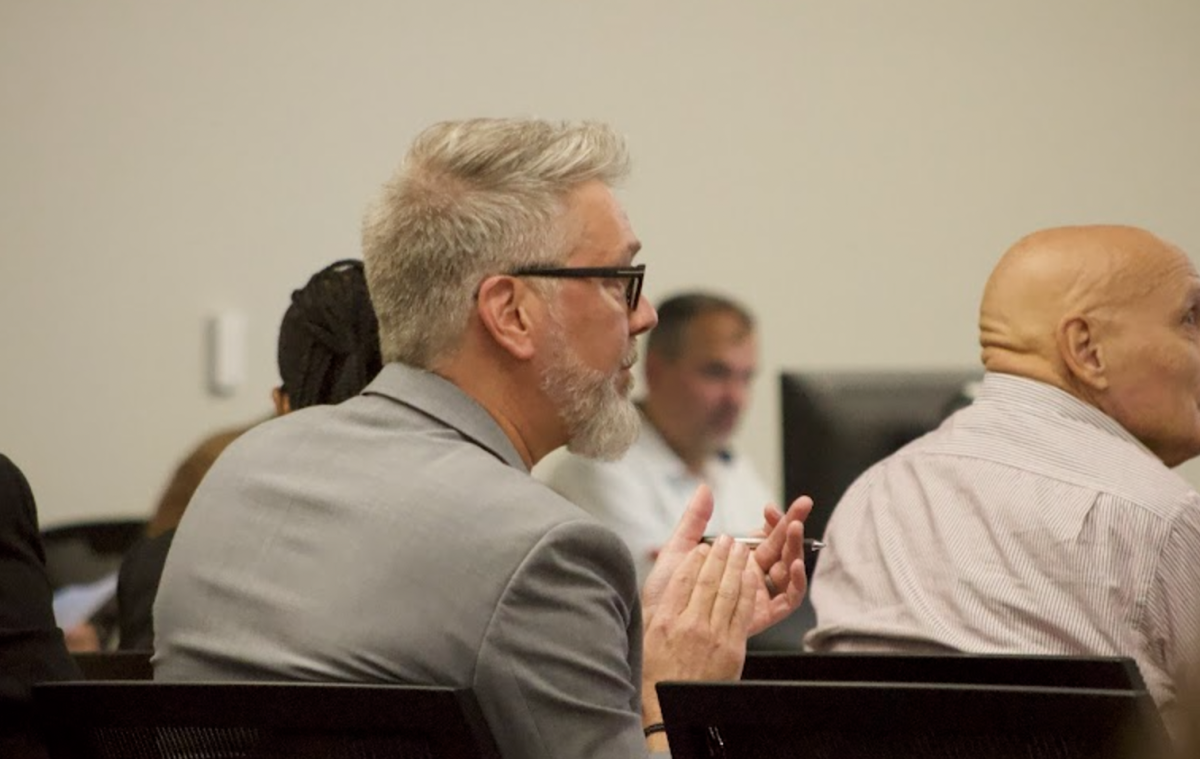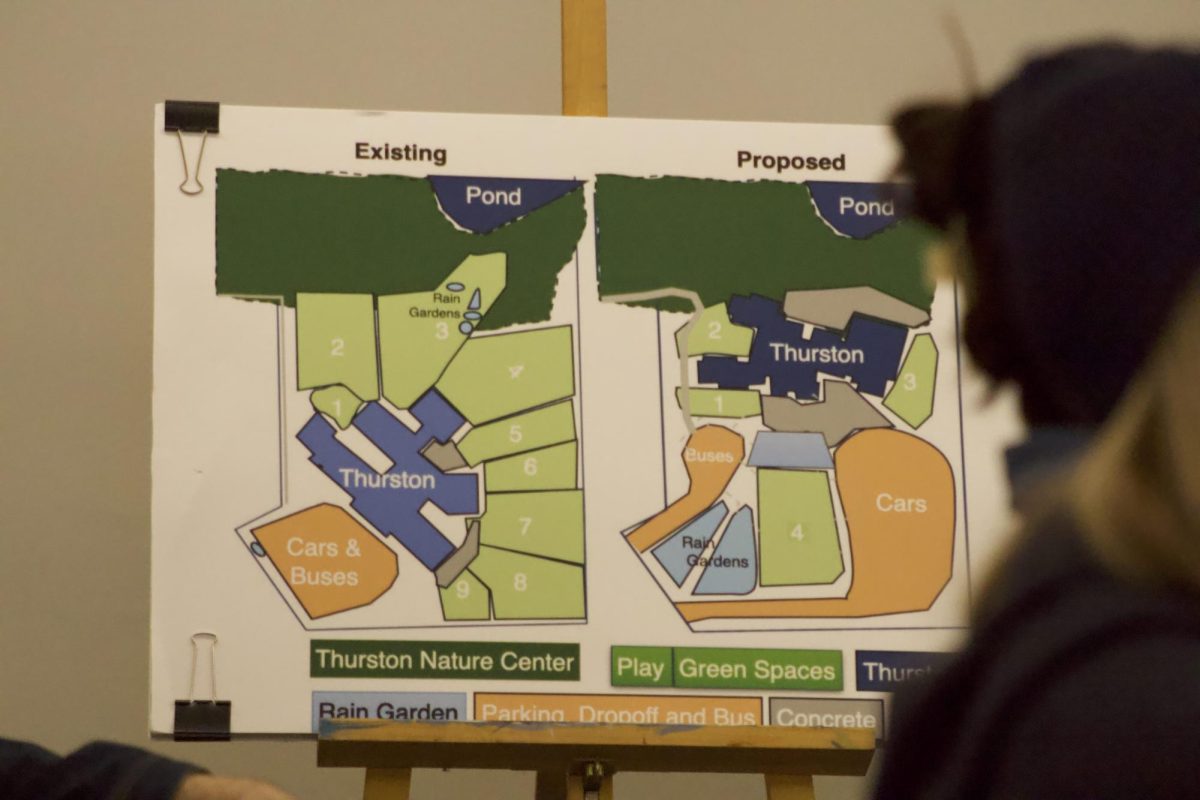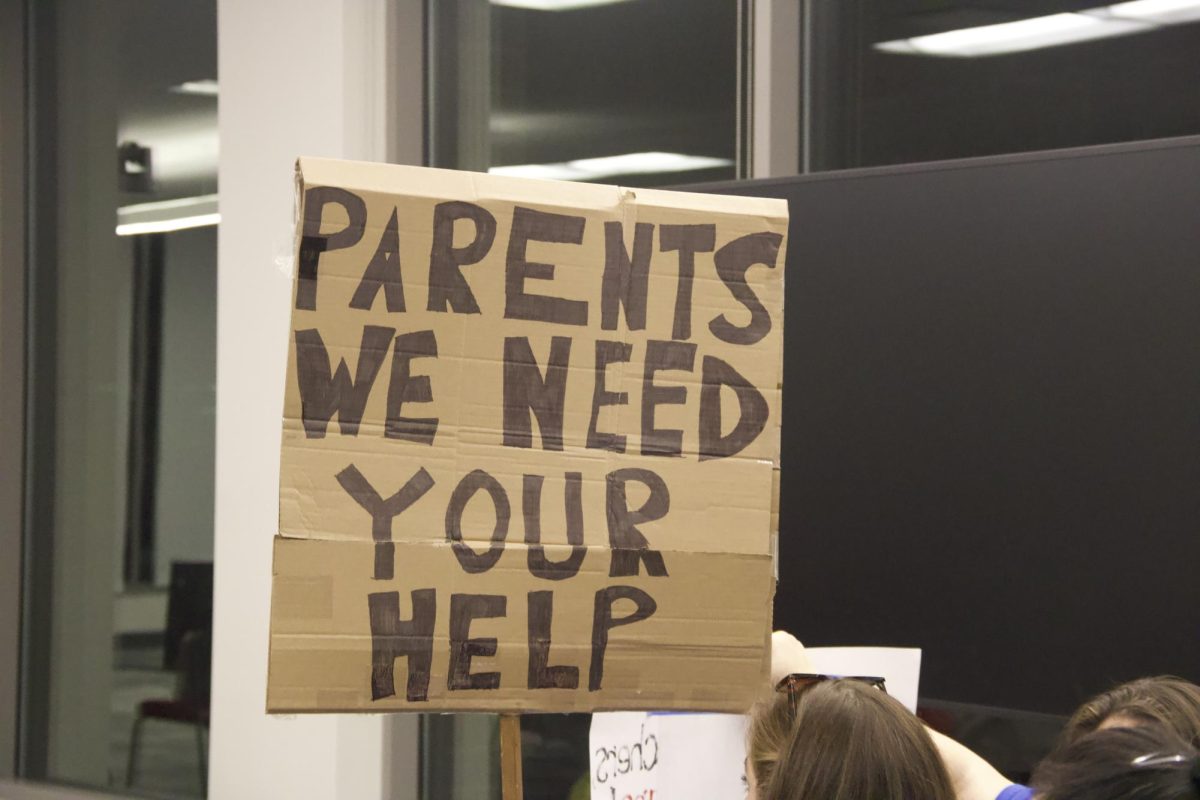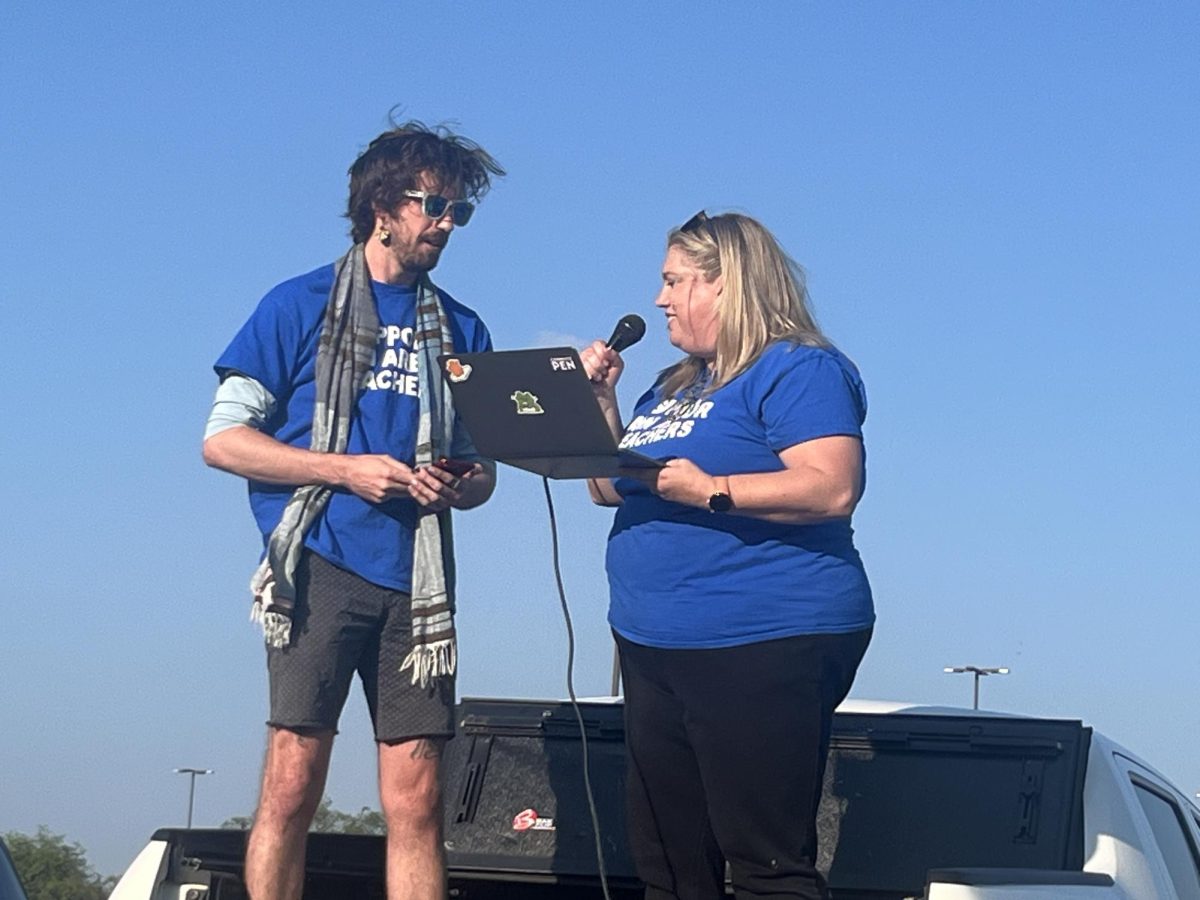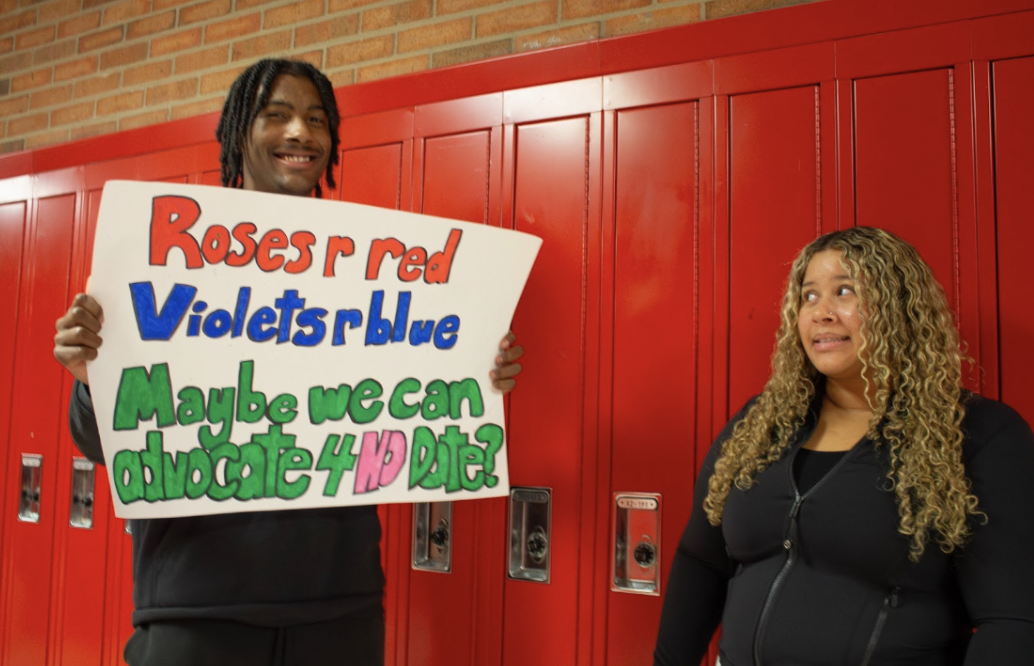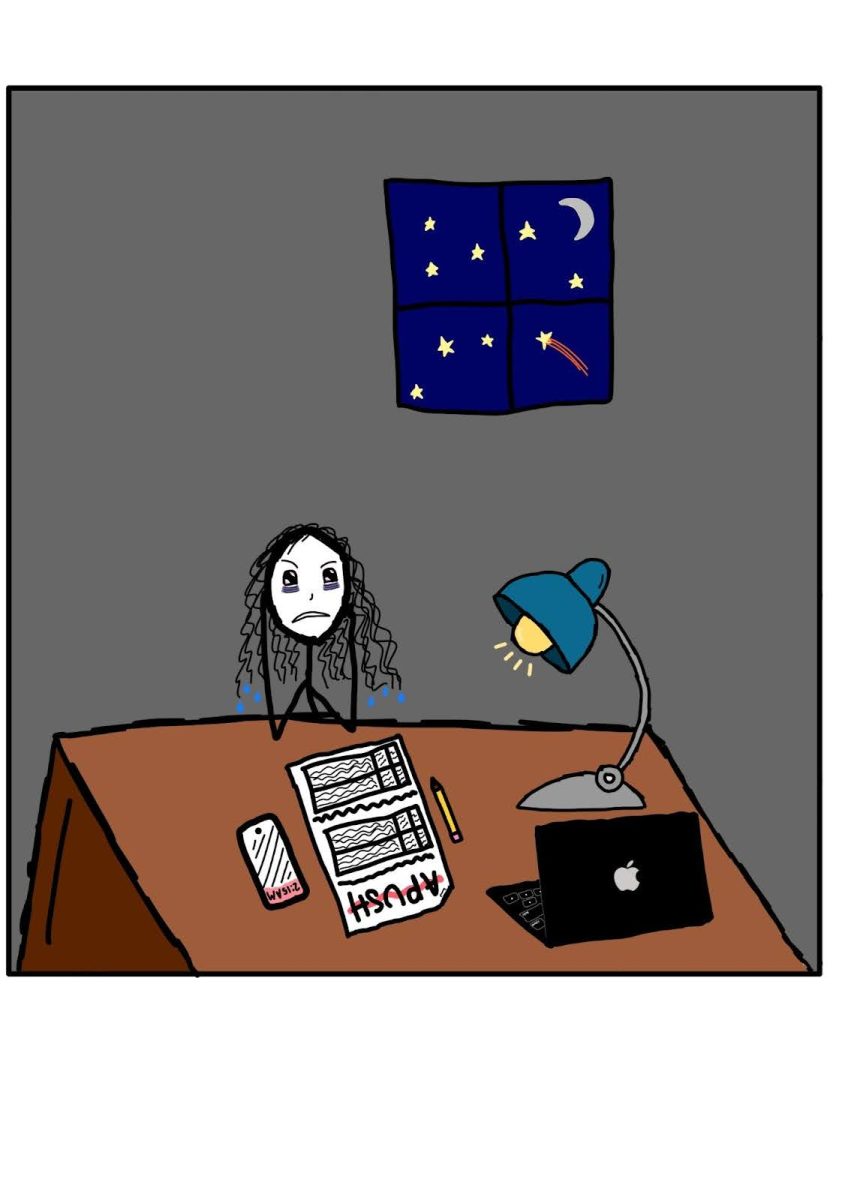As a student journalist and Managing Editor of The Huron Emery, I seek answers about the district’s financial condition. Through interviews with board members, parents, students and teachers, I found that the uncertainty brought on by the district’s financial condition is a widespread concern. Many remain deeply concerned about the potential layoffs affecting our teachers, their families and the entire school community. I have observed in my interviews that the possibility of layoffs has inflicted much stress on teachers and students alike — a burden that no one deserves to carry.
While it is tempting to point fingers or fuel rumors, I urge the school board and the broader community to maintain productive dialogue focused on fostering sustainable long-term solutions that put quality education front and center. To accomplish these aims, communication must be more accessible and transparent, whether by attaching financial reports in community-wide communications or providing more translated materials.
On April 15, I tuned in to the Q&A of the virtual town hall meeting. Despite planning on writing a brief covering the virtual town hall meeting, the lack of concrete information left me typing without progress. In the meeting’s last poll question, the board asked attendees to rate the helpfulness of the virtual town hall meeting. The board reported that 48% found the format helpful, 33% found it somewhat helpful, 10% did not, and 9% were unsure.
On April 16, I signed up as a volunteer to give directions to attendees for the community meeting, with no plans to attend the meeting given my low expectations. I was equally puzzled as the attendees that the community meeting was not at the auditorium but rather in the cafeteria, which at the time, felt informal for the occasion.
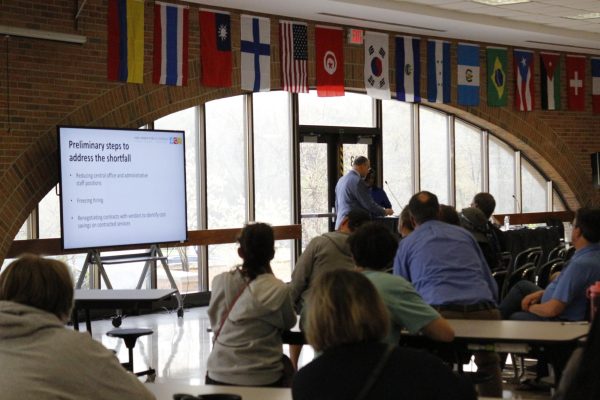
Finally, I decided to attend the community meeting in hopes of gaining a better understanding of the district’s financial situation. When I walked inside the cafeteria, I was surprised to see two chart papers on each table, with groups engaged in active discussion.
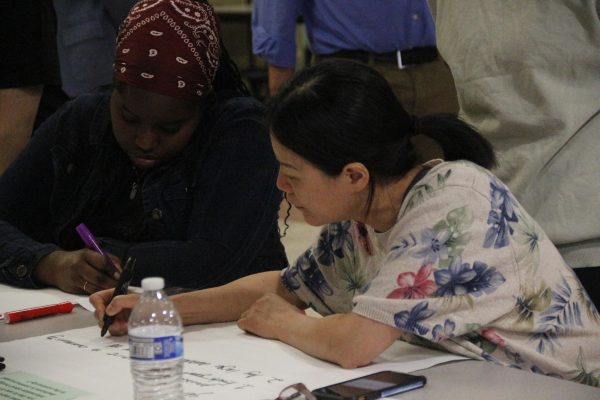
I bumped into my old friend of eight years, Mariam Nassuna. As a class of 2023 Huron graduate working towards her associate’s degree, I wanted to know why the community meeting mattered to her. She spoke about the positive impact of her teachers and her desire to “support the people that changed my life” upon hearing about the potential layoffs. To our left, parents shook their heads at how difficult it was to find the financial reports. To our right, another parent pointed out how laying off teachers meant losing more students who attend our district. We began sharing our thoughts as a group, getting louder and louder.
Around us, the cafeteria was no longer silent.
This table talk was followed by a Q&A with AAPS superintendent Jazz Parks, board president Torchio Feaster, assistant superintendent for finance and operations Marios Demetriou and board treasurer Susan Schmidt. Community members submitted their questions ahead of time during the table talk. In the Q&A, the board members addressed several key misconceptions regarding the financial situation. They clarified that the unaccounted-for $14 million did not affect the budget crisis and that certain bonds can only be used for prescribed purposes. Several questions and responses were greeted with light applause.
After the Q&A, I briefly interviewed superintendent Jazz Parks one-on-one. Her sincere responses gave me a clearer understanding of the timeline of events and the board’s ongoing efforts to convey accurate information to the school community.
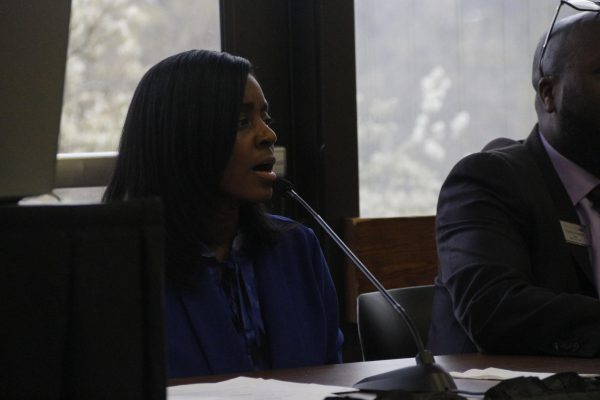
I realized that the district’s financial condition also drains board members and blame-seeking will not get our school community closer to a solution. The board has attempted to enhance transparency to navigate this crisis with the survey and meetings in various formats. The in-person community meeting in the informal cafeteria setting and table talks was a smart choice, creating a far more open atmosphere than the virtual town hall meetings ever will.
Regardless, the board must hold themselves accountable by ensuring the school community has an accurate picture of how the budget error occurred and what can be done to prevent this crisis from repeating itself. I believe this work can be achieved while putting education — especially our teachers who dedicate so much of their energy to ensure the success of every student far beyond contractual hours — front and center. Laying off teachers should be the last and final resort. The weight of the board’s colossal budget error should never be placed on the shoulders of parents, students, and most importantly, our teachers.
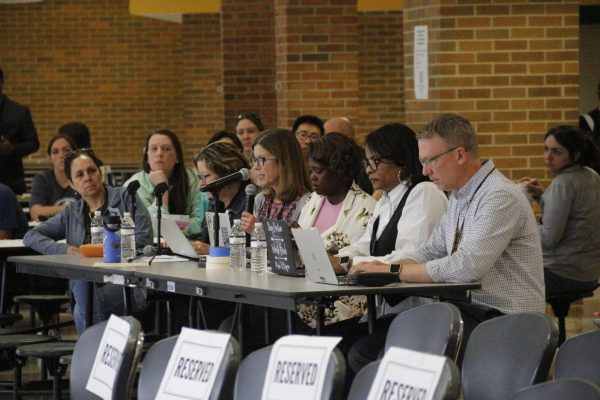
I call on the district to prioritize long-term strategic planning that budgets rising costs to fulfill all educational needs that support education and draw students to the district, from keeping teacher-student ratios low to providing before and after-care services. In this planning, the school must prioritize giving teachers the better wages and stipends they deserve. This extends to covering additional stipends for the many teachers who devote hundreds of hours to school activities and clubs outside of contractual hours. From my interviews, teachers feel their love is treated as disposable by the board meant to serve them. In the April 15 virtual town hall meeting it was inappropriate for the school board to cite the increase in contributions to teacher retirement plans and increased staff hiring in the virtual town hall meeting, as these should be accounted for in the budgeting.
The work in navigating our district’s financial condition is far from over. Like any crisis, it will take time for us as a community to pull through. We cannot allow the district’s financial condition — and the shortcomings within the school board underscored by the budget crisis — to rob our peace and our right to quality education. As a graduating senior, I hope to see the community stay together to ensure the long-term success of our district and the families in it.



